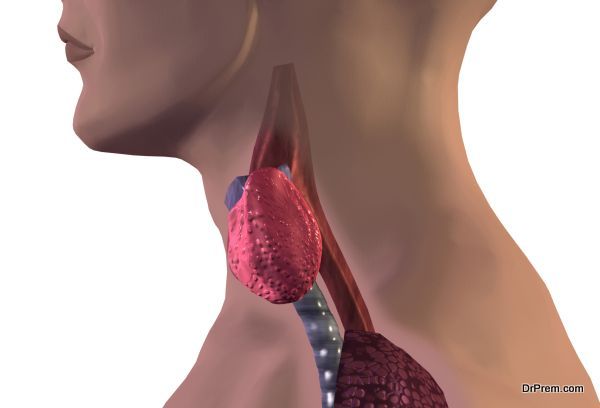An autoimmune disorder that is usually caused by a hyperactive thyroid gland, Grave’s disease causes the body’s defense mechanism to mistakenly identify and destroy healthy living cells instead of foreign contaminants. Grave’s disease is a common occurrence in individuals who suffer from hyperthyroidism although the exact cause for the condition has still not been identified properly. While some attribute it to genetics, other consider environmental factors to play a role in Grave’s disease. The condition is most likely to strike an individual between 20 and 40 years of age, with women being more prone to the condition than men.
Symptoms of Grave’s Disease

A proper diagnosis can only be made if the symptoms are correctly interpreted. Hence, it is imperative that one knows the symptoms of Grave’s diseases beforehand. As such, the more common symptoms of the condition include nervousness, mood swings, insomnia, heart palpitations, hand tremors, profuse sweating, drastic weight loss, muscle weakness, breathlessness and increased sensitivity to warm temperatures, etc.
Some of the more serious symptoms of Grave’s disease include goitre (the lower portion of the neck swells up profusely), vision impairment (caused by inflamed eyes) and skin problems (appearance of dark, itchy patches).
Diagnosing Grave’s Disease

A doctor would start the diagnosis by checking for visible symptoms like inflamed eyes, patchy sin and goitre. Other symptoms like nervousness, weight loss, hand tremors, palpitations, mood swings, menstrual irregularities and sensitivity to heat will also be checked, with the doctor most probably asking the concerned individual about them.
The physical examination will start with the thyroid gland (below the neck) where the doctor will feel for enlargement or abnormal lumps. The doctor would also use a stethoscope to check for abnormal blood flow in and around the thyroid gland. Other signs like heart rhythm, heart rate, tendons and reflexes will also be checked out.
This will then be followed by a few blood tests to check for hyperthyroidism. A CT (computed tomography) or MRI (magnetic resonance imaging) scan will check for issues in and around the eyes. Other tests like electrocardiograms will be conducted if the doctor feels the heart is being affected by the disease.
Prevention and Treatment of Grave’s Disease

Sadly, Grave’s treatment cannot be prevented. However, proper treatment can help bring down the symptoms to a manageable level. Treatment for Grave’s disease would mostly focus on reducing the symptoms of the condition as well as slowing down the production of hormones by the thyroid gland.
To curb the excess secretion of hormones, individuals are usually prescribed three treatment plans, anti-thyroid medications, radioactive iodine and surgery.
Anti-thyroid Drugs: These drugs inhibit the production of thyroid hormones significantly. Drugs like methimazole and propylthiouracil are used for the same purpose. However, they should be used in moderation and under the strict guidance of a qualified physician.
Radioactive Iodine:

This treatment plan involves using administering radioactive iodine by mouth to individuals in order to curb the excess production of the thyroid hormones. The treatment usually comprises of one large dose of radioactive iodine to render the thyroid gland functionless. This means that after treatment, one would need to take thyroid medications every day for the rest of his/her life. This treatment plan is not suitable for pregnant ladies and breast feeding mothers. Individuals who opt for this treatment would also need to stay away from others for several days during and after treatment in order to avoid spreading the radiation to others around them.
Surgery:

Surgery for Grave’s disease is recommended only in cases where the goitre is too large to respond to the other two treatment options. In the case of surgery, a part of (or most of) the thyroid gland is removed following which anti-thyroid medications and radioactive iodine would be more effective on the remaining part.
Summary
Grave’s disease is an autoimmune disorder caused by the thyroid gland’s hyperactivity. Although the condition cannot be prevented, it can be controlled to an extent with the help of the treatment plans mentioned above.


